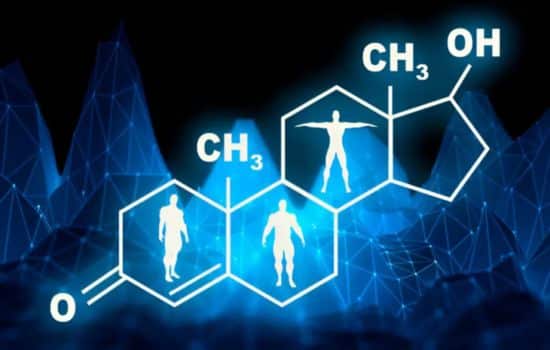Testosterone is an essential steroid hormone that influences many aspects of our health, from muscle development to mental well-being. Although it's commonly associated with men, it also plays a role in women, albeit in smaller quantities.
Testosterone levels vary depending on age, gender, and other biological factors, and can have a significant impact on our quality of life. In this article, we'll delve into what testosterone is, its main benefits, and the risks of having low levels of this hormone. We'll also suggest a useful tool, Testosterone Calculator Pro, to monitor and simulate your hormone levels.
What is testosterone?
Testosterone is a hormone that belongs to the group of androgens, which are responsible for the body's masculine characteristics. In men, this hormone is primarily produced by the testes, while in women, it is produced in the ovaries and adrenal glands.
Although it is present in smaller amounts in women, it is still important for maintaining vital functions, such as regulating sexual desire and bone health.
In men, it influences the development of secondary sexual characteristics during puberty, such as a deeper voice, the growth of facial and body hair, and increased muscle mass. It is also involved in sperm production and the regulation of libido.
Over time, levels decline, especially after age 30, which can lead to a number of physical and emotional changes.
Benefits of testosterone
Testosterone is not only important for sexual function, but also has significant effects on various areas of physical and mental health. Below are some of the most important benefits of maintaining healthy testosterone levels.
1. Improves muscle mass and strength
It is essential for muscle development, as it stimulates protein synthesis and promotes muscle growth and repair. This allows people to maintain their physical strength, increase muscle mass, and improve performance in physical activities.
Adequate testosterone levels also help prevent muscle loss, which is especially important as people age.
2. Maintains bone health
Testosterone plays a crucial role in bone health, helping to maintain bone density. Low testosterone levels can lead to bone loss, which increases the risk of osteoporosis and fractures, especially in older men.
Testosterone promotes bone mineralization, which helps maintain strong and resilient bones over time.
3. Regulates libido and sexual function
Testosterone is essential for sexual function. In men, it directly influences sperm production and libido. Low testosterone levels can cause a decrease in sexual desire, which can negatively affect sex life and relationships.
In women, testosterone also plays an important role in regulating libido and sexual arousal, although to a lesser extent.
4. Improves emotional well-being and mental health
Testosterone levels are also closely linked to emotional well-being. Decreased levels of this hormone can be associated with increased fatigue, depression, and anxiety. Testosterone influences mood, energy, and motivation, contributing to a better quality of life.
Men with low testosterone levels may experience irritability and lack of motivation, which affects their ability to perform everyday tasks.
5. Increases red blood cell production
Testosterone also has an effect on red blood cell production, which improves tissue oxygenation and the body's resilience. By stimulating erythropoiesis (red blood cell production) in the bone marrow, testosterone contributes to maintaining a healthy cardiovascular system and improving blood circulation.
- How to Find Open Wi-Fi Networks and Improve Your Connection
- How to Improve Your Cell Phone's Volume to Increase Power
- Enjoy the best baseball games from your cell phone
- How to discover who you were in your past lives
- Enjoy the best dramas
Consequences of having low testosterone levels
While testosterone has numerous health benefits, low levels of this hormone can have adverse effects on various bodily functions. Below are some of the main consequences of low testosterone:
1. Loss of muscle mass and increase in body fat
One of the most noticeable effects of low testosterone levels is the loss of muscle mass. As levels decrease, protein synthesis is impaired, resulting in a reduction in muscle mass.
This can lead to a loss of strength, difficulty exercising, and even an increase in body fat, especially in the abdominal area. Men with low testosterone tend to gain weight more easily, which increases their risk of metabolic diseases.
2. Decreased sexual desire and erectile dysfunction
Sexual desire, or libido, is strongly influenced by testosterone. A lack of this hormone can cause a significant decrease in sexual desire, as well as erectile dysfunction.
Erectile dysfunction is a common condition among men with low testosterone levels, which affects their ability to maintain satisfactory sexual relations. Furthermore, libido problems can affect emotional quality of life and interpersonal relationships.
3. Fatigue and mood problems
Fatigue and lack of energy are common symptoms among people with low testosterone levels. The decrease in this hormone can cause a general feeling of tiredness, which affects motivation and the ability to perform daily activities.
Additionally, low testosterone is linked to an increased risk of depression, irritability, and anxiety, which can diminish quality of life and emotional well-being.
4. Reduction in bone health
Testosterone plays a key role in bone health. A lack of this hormone can reduce bone density, increasing the risk of fractures and osteoporosis. This is particularly concerning in older men, as the decline in testosterone with age can make bones more fragile and susceptible to injury.
5. Decreased concentration and memory
Low levels can also affect cognitive function, including concentration and memory. People with low levels of this hormone may experience difficulty concentrating, which can interfere with their ability to perform tasks that require attention and reflection. This can also lead to a general feeling of mental sluggishness and lack of clarity.
How to monitor testosterone levels?
If you suspect your testosterone levels are low, it's important to get a follow-up to get an accurate assessment of your hormonal health.
An excellent tool for this is Testosterone Calculator Pro, an app that allows users to simulate and calculate their testosterone levels based on a number of relevant parameters, such as age, sex, habits, and health conditions.
Features of Testosterone Calculator Pro
1. Accurate assessment of testosterone levels
Testosterone Calculator Pro allows users to enter relevant data about their health and habits to estimate their testosterone levels. This is done through a simple questionnaire that considers factors such as age, physical activity, diet, and related symptoms.
2. Personalized recommendations
Based on the results obtained, the app provides personalized recommendations to improve or maintain healthy testosterone levels. This includes suggestions on diet, exercise, and lifestyle changes that can help increase natural testosterone production.
3. Easy to use
The interface of Testosterone Calculator Pro It's user-friendly and easy to use. Users can get results quickly, without the need for extensive medical knowledge. The app is designed to be accessible and useful for anyone who wants to easily monitor their hormonal health.
4. Long-term monitoring
The app also allows for long-term monitoring of testosterone levels, which is useful for those who want to observe the impact of lifestyle changes or medical treatment on their hormone levels.
Conclusion
Testosterone is a fundamental hormone that influences many aspects of physical and mental health. Maintaining healthy testosterone levels is essential for overall well-being, and a decrease in this hormone can lead to a variety of problems, from muscle loss to fatigue and decreased sex drive.
Fortunately, tools like Testosterone Calculator Pro They can help you evaluate and monitor your hormone levels, offering personalized recommendations to optimize your health and quality of life.
If you suspect your testosterone levels are low, don't hesitate to use this tool to get an accurate assessment and improve your overall well-being.







